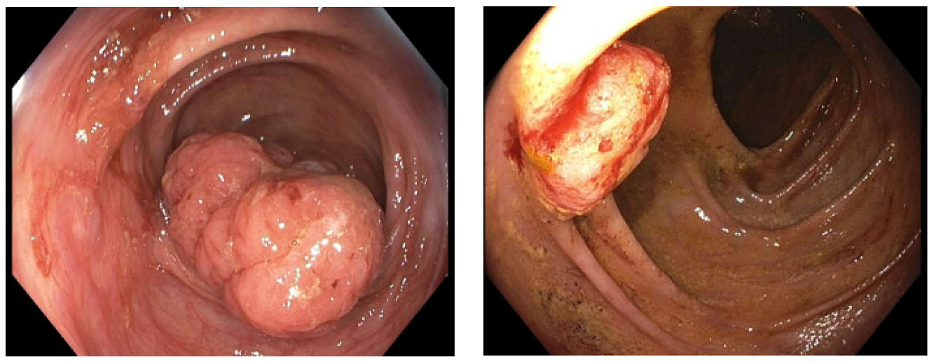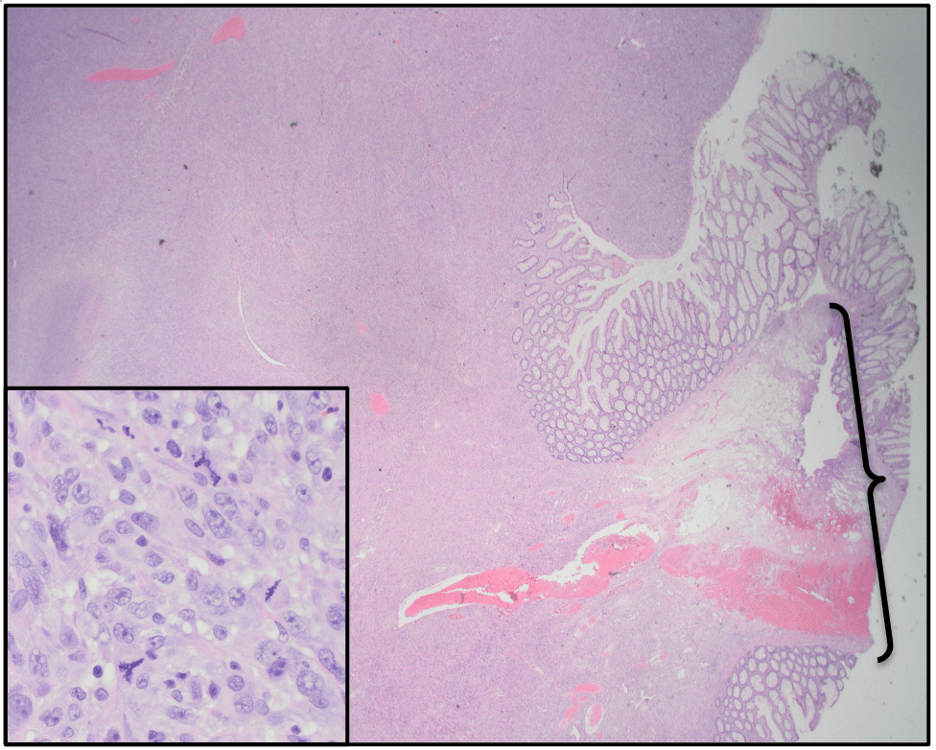Sunday Poster Session
Category: Colon
P0336 - Spindle Cell Sarcoma Metastasis in the Colon


Kelly Fan, MD
SSM Health Saint Louis University Hospital
St. Louis, MO
Presenting Author(s)
1SSM Health Saint Louis University Hospital, St. Louis, MO; 2Saint Louis University, Saint Louis, MO
Introduction:
Soft tissue sarcomas are rare malignancies that often metastasize to lungs, bone, liver, or brain; however, intestinal metastasis is uncommon. We present a case of metastatic spindle cell sarcoma to the colon.
Case Description/Methods:
A 76-year-old male with a history of malignant dermal spindle cell of the forehead removed via Mohs micrographic surgery, coronary artery disease, and chronic obstructive pulmonary disease presented with dyspnea on exertion. He also reported intermittent episodes of rectal bleeding with a hemoglobin of 8.2 g/dL and concurrent iron deficiency anemia. Computed tomography (CT) scan of the chest, abdomen, and pelvis revealed numerous well-circumscribed pulmonary nodules as well as a mass in the wall of the proximal transverse colon measuring 2.9 x 2.9 cm.
He underwent colonoscopy which revealed a 25-30mm transverse pedunculated colon polyp with an area of central depression and ulceration. An additional 15mm ascending colon lesion was discovered (Figure 1).
The colon lesions were endoscopically removed and sent for pathology; pathology results revealed malignant spindle cell proliferation of the cecum, ascending colon, and transverse colon with similar morphologic and immunophenotypic characteristics to those seen in the patient's prior malignant dermal spindle cell proliferation from the forehead (Figure 2). Lung biopsies also displayed metastatic spindle cell sarcoma.
The patient followed up with oncology; it was determined that he was not a suitable candidate for systemic therapy given his multiple comorbidities. Eventually, the patient decided to pursue hospice care and passed away shortly thereafter.
Discussion:
Spindle cell sarcomas are a subtype of soft tissue sarcoma that most commonly originate in superficial tissue. Colonic metastasis is highly uncommon, reflected by the dearth of reports within the literature.


Disclosures:
Kelly Fan, MD1, Ameya Deshmukh, DO1, Danielle Carpenter, MD1, Mike Giacaman, MD2. P0336 - Spindle Cell Sarcoma Metastasis in the Colon, ACG 2025 Annual Scientific Meeting Abstracts. Phoenix, AZ: American College of Gastroenterology.
